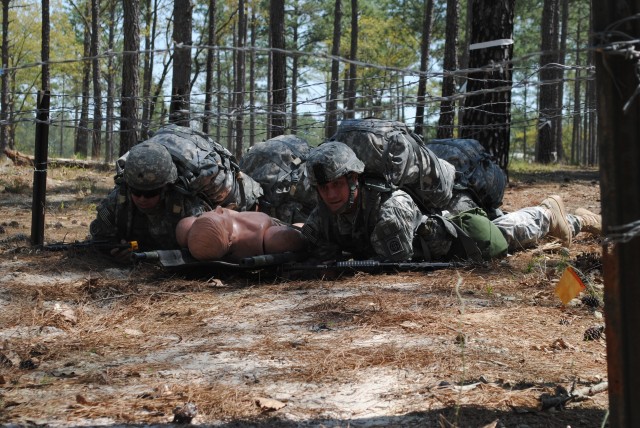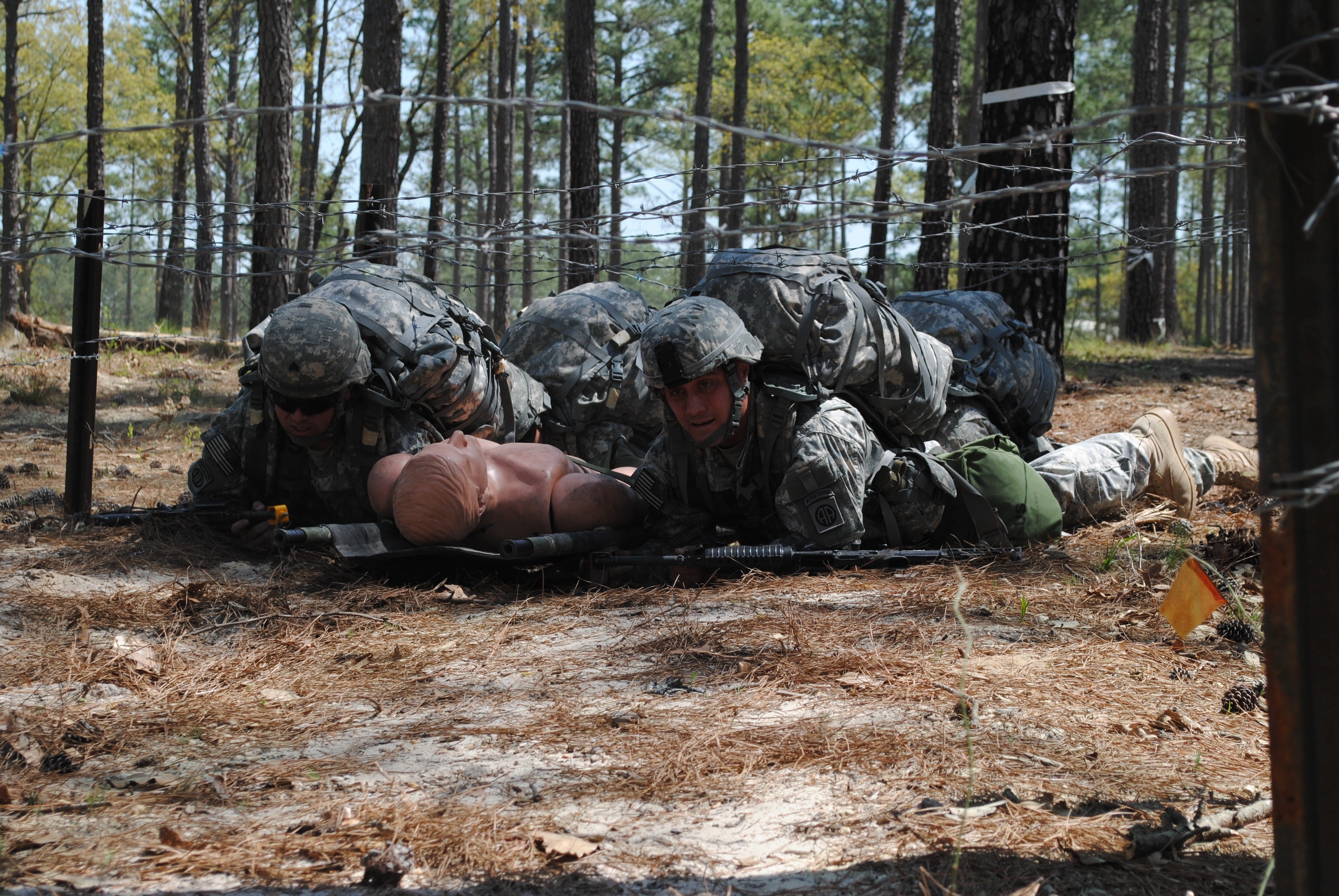
FORT BRAGG, N.C. - After two weeks of training and another week of qualification, the Expert Field Medical Badge was awarded to 39 Soldiers during a graduation ceremony at Fort Bragg, April 15.
This class began with over 180 candidates from around the Army and was hosted by 3rd Brigade Combat Team, 82nd Airborne Division which is the first brigade to run the training and qualification course on their own.
"This is typically a XVIII Airborne Corps run event, this is the first time a brigade has managed to organize the training without upper level Army support," said Capt. Michael Arnett, the brigade surgeon for 3rd BCT.
Although the course was run by a brigade, the same standards applied to every part of the training and qualification.
"The qualification is comprised of an in-depth, written test, three combat testing lanes which include a decontamination lane, a tactical medical care lane and an evacuation lane. After that, they must complete a land navigation test and a 12 mile ruck march in under three hours," said Arnett.
Each qualifying event was strictly graded by several skilled and proficient medics who received their EFMB in past years. However, if the graders fail a candidate on any event, the candidate has an opportunity to go to a board of appeals and get it reversed.
The first event of qualification was the written test which, in the past, has been the main event that fails many of the candidates due to the in-depth specifics of combat medical treatments.
The next events are the combat testing lanes. Throughout each of the three medical care lanes, the candidates had to show their abilities in different scenarios.
Before the scenarios however, the candidates had to complete a full weapon functions check. After the weapons check, the candidates moved on to the tactical medical lane where they had to assess the wounds on a simulated casualty and then transport the casualty under barbed wire while loud explosions caused by air compressed devices rang in their ears. Once making it to safety with the casualty, the candidate entered a room where three more injured Soldiers waited.
The candidate would have to perform everything from a needle chest decompression, to properly giving an I.V. to ensure that the patients would survive.
Throughout this lane, Arnett said the candidates must ask themselves, "how do I overcome this obstacle, how do I protect my patient."
Another testing course was the nuclear biological and chemical lane where the candidates had to respond to a simulated attack by donning all of their NBC equipment within a limited amount of time.
The last of the three, combat-based testing lanes was the evacuation lane where the candidates were required to call in a nine-line medical evacuation, respond to a patient with a simulated back injury and transport the patient to safety without furthering the casualties' complications.
Although all the testing is relevant to today's battlefield Arnett said that the evacuation is one of the most important parts of the qualification because of how often it is needed and used in combat today. "All the training is combat scenario based and most times, a medic is going to need to get the casualty to an evacuation as soon as possible, it is a very real life situation" he said.
After the combat scenario testing, the candidates moved on to their land navigation test where they were required to navigate to a series of points using only a map and a compass. On the night before graduation, the candidates who failed the written test were given one last opportunity to pass.
But on graduation day, only 39 candidates remained and the last test was the forced 12 mile ruck march which the candidates had to complete in under three hours. All 39 candidates made it in time to receive their Expert Field Medical Badges.
The journey was not easy and the graduates were exhausted. The first paratrooper from 3rd Brigade to pass the finish line was Pfc. Chris Guiles, a native of Brownsburg, Ind., who is assigned to Co. C, Brigade Support Battalion, 3rd BCT, 82nd Airborne Division.
"The march was by far the most physically demanding part of the testing, I have been training hard since June of last year and it still wore me out." he said.
Arnett said the Soldiers and paratroopers who received the EFMB will now stand above their peers.
"The EFMB is the gold standard on all levels of soldiering, the testing pushes the limits of the medic, and when someone sees you wear it they know you have exceeded the standard," he said.

Social Sharing